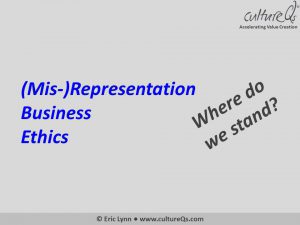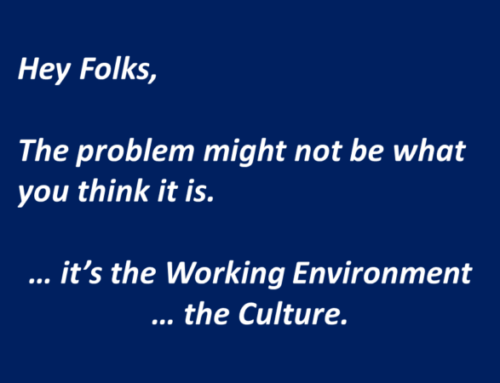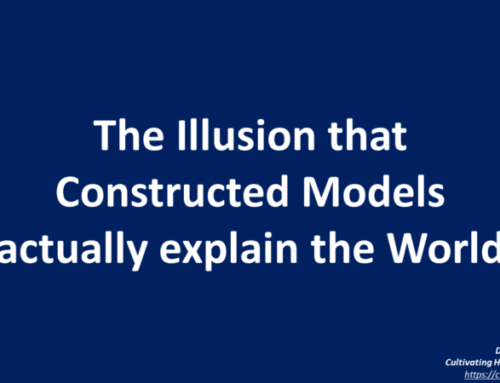(Mis-)Representing the Fundamentals of Change … An Ethical Question?
I attended an interesting international conference earlier this month which, not unusually, had a programme over-subscribed with keynote speeches.
One of these keynotes concerned itself with managing change. The abstract referred to “some of the fundamental reasons why transformational change is difficult”. The speaker is a university professor and also works for one of the world’s largest management consultancies.
The presentation was well-structured, listed 9 reasons why transformational change is difficult, and to someone who has not confronted the theme of change at a deep level, sounded rational.
Here lies the problem, perhaps we should use the plural … here lie the problems.
There is nothing whatsoever rational about change or people’s reactions to it. We humans are not rational beings. Our reactions to being confronted with new situations, as well as our decisions have an emotional foundation.
The speaker did not distinguish between “transformation” and “change”.
If we begin to present “the fundamental reasons why transformational change is difficult” to a client, are we not setting them up to think in terms of difficulties and problems, perhaps even where none exist? I do understand, however, how this approach could fit into the business model of large management consultancies.
If I tell myself change will be difficult, one thing is guaranteed … it will be!
If I am in denial about the new situation confronting my organisation, I’m likely to resist it, … and will therefore find change difficult. Classic examples include the post-acquisition phase after a corporate takeover, especially an international one; the need to embrace modern digital technology in the traditional media sector; an organisation that redefines itself from a component supplier to a systems supplier. These are all examples of transformations, not simple change. They require fundamentally different approaches and mindsets towards one’s work, one’s role, the organisation and external stakeholders including customers.
My experience as a consultant on such change projects has taught me the desirability of being completely honest with employees on the fundamentals of the new situation … “Let’s accept the new situation as fact. How are we going to design this new organisation, including our working environment, for our mutual benefit?”
People generally appreciate invitations. We are social animals and enjoy involvement. Why not invite them into the change process, invite them to take joint responsibility for designing and managing it?
Not many people will claim that change processes are easy, notwithstanding the (true) platitudes of change being an ever-present element of our lives. I certainly don’t.
However, having been through multiple changes and more than one conscious transformation process in life, I’ve learned the dangers of denial as well as the benefits of confronting and embracing the new “facts of life”. Not only does this facilitate the process, it makes it far richer.
At the same time, I’ve experienced and learned the dangers of push and benefits of invitation.
So, I conclude with a question to all management consultancies …
How many employees that you entitle “Change Manager” or similar have actually been through a conscious fundamental personal change process and would be able to instantly explain their process and learnings?
If you are sending a “Change Manager” who has not been through such a process to a client, how are they realistically able to support the client?
Are these not ethical as well as impact-related questions?
We look forward to your comments.






